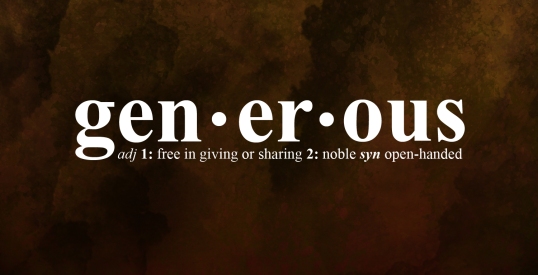What’s Mine is Not Mine
What should we do with the treasures with which we’ve been blessed? Sindiso Mnisi Weeks shares how she’s grappling to let go in a culture holding on.

Psychologists describe how a significant milestone in child development is when the child begins to understand herself as a separate entity from her mother and the rest of the world. What follows shortly thereafter is the realisation that she can possess things. “Mine!” she says, “… mine, mine, Mine, MINE!”
Perhaps one of the most radical – counter-cultural … even, perhaps, counter-evolutionary! – lessons the Gospel calls us to embrace as adults is the lesson that, though we can possess things, what we possess is actually not ours.
How often does the Bible call us to:
“[N]ot lay up for yourselves treasures on earth, where moth and rust destroy and where thieves break in and steal, but lay up for yourselves treasures in heaven, where neither moth nor rust destroys and where thieves do not break in and steal. For where your treasure is, there your heart will be also.” (Matthew 6: 19-21)
And our hearts should be in God alone.
So, what should we do with those treasures with which we have been so blessed – and for which we might have worked very hard – in this world?
“Anyone who has two shirts should share with the one who has none, and anyone who has food should do the same.” (Luke 3: 11)
Or, in the words of the Old Testament:
“‘The land must not be sold permanently, because the land is mine and you reside in my land as foreigners and strangers. … [T]he land that you hold as a possession … will be returned in the Jubilee, and they can then go back to their property.”… “‘If any of your fellow Israelites become poor and are unable to support themselves among you, help them as you would a foreigner and stranger, so they can continue to live among you.'” (Leviticus 25: 23-24, 28, 35)
In this vein it continues.
If the Bible takes such a radical approach to material possessions, why is it so hard to persuade our own hearts of this attitude?
Some would say it’s evolution – the survival of the fittest instinct that has kept us from extinction so far. Some would say it’s our fallen nature – the sinfulness within us that resists all things godly and pursues self-interest at every turn.
Maybe it’s both.
Yet the truth remains that, for most people, the child within who first awoke to the realisation that at least some things could be “mine!” refuses to let go. Very much like Adam and Eve when their eyes were opened to selfishness and greed and they lost their ability to fully trust in God’s provision for them, even as they lost their place in God’s immediate company in Eden.
I can give you the experiential background on why it’s hard for me, personally, to take this radical, Biblical approach to material possessions. I grew up in a family where financial security was rarely experienced. Now, I’m one of few people in my family who has achieved financial security and it’s hard for me not to worry about “having enough”. It’s also easy to tell myself that it’s not just for my sake but also for that of the people who depend on me for support.
Yet, in the moments in which I am able to be entirely honest with myself, I admit to God that what is really at issue is that – despite my ten years of following Him – I remain one “of little faith”.
This is what makes me desperate to possess the things that He has given us all to enjoy in the world and to do so even against the backdrop of deprivation and suffering experienced both near and far. I am pathologically attached to “my hard-earned belongings”. And, because I don’t earnestly trust that I’ll be taken care of if I do let go of them, “my assets” are where my “real, daily functional salvation” lies (to quote Revd. Tim Keller).
More than that, I don’t trust the people to whom the things I would so painfully let go of might be given to use them “well” (whatever that means), which is why it’s often hard to give to those in need.
Just recently, in my quiet time, I returned to the parable of the rich man dining at his table while Lazarus lay at his gate covered in sores that were licked by the rich man’s well-fed dogs (Luke 16: 19-31). The rich man died and went to hell while, when Lazarus died, he went to heaven. And, when the rich man inquired into why this was so, “Abraham said, ‘Child, remember that you in your lifetime received your good things, and Lazarus in like manner bad things; but now he is comforted here, and you are in anguish.” (Luke 16: 25) At essence, the cause was not the man’s wealth but what the way in which he used his wealth revealed about his heart. After all, “faith apart from works is dead.” (James 2: 17, 26)
When I sat at a restaurant later that week, there was no poor person at the door. Yet, nonetheless, the mothers watching their children die from starvation were briefly revealed to my mind’s eye and I knew it was the Holy Spirit tugging at my heart to say that I am that rich man. And, indeed, according to the “global rich list”, I am.
The only question remaining is whether, when I meet my Maker, He will say “‘Come, you who are blessed by my Father, inherit the kingdom … [for] as you did it to one of the least of these my brothers, you did it to me.”” (Matthew 25: 34, 40) God help my heart to let go of the things I so unwisely hold onto and recognise that the present shall pass like the night while eternity is long …
In the Apostle Paul’s words, “What I mean, brothers and sisters, is that the time is short. From now on … those who buy something [should live] as if it were not theirs to keep; those who use the things of the world, as if not engrossed in them. For this world in its present form is passing away.” (1 Corinthians 7: 29-31)
How are you feeling challenged to be generous?
– Sindiso Mnisi Weeks is a senior researcher at the Centre for Law and Society at UCT. She and her husband, Daniel, were members of the Common Ground Church Rondebosch AM congregation until recently relocating to the USA.
P.S. Other recommended reads: “Hope In An Age Of Hunger” by Roger Wood and “What Is Urban Gleaning?” by Caroline Powell






